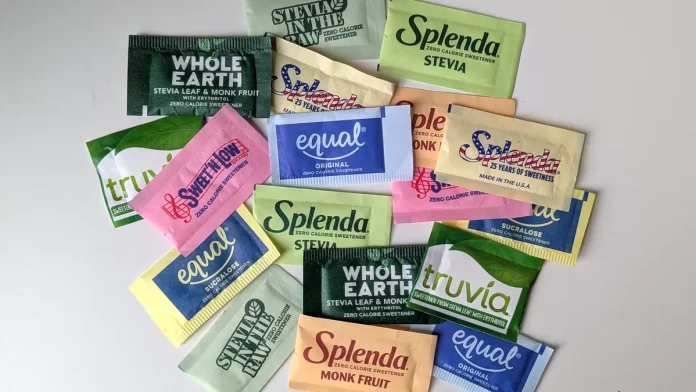Research in Neurology® finds several common artificial sweeteners associated with faster memory and thinking decline in middle-aged Brazilian adults.
Some sugar substitutes may have unforeseen consequences for long-term brain health, according to research published in the 3 September 2025 issue of Neurology®, the journal of the American Academy of Neurology. The study investigated seven low- and no-calorie sweeteners and found that people with the highest intake experienced quicker declines in thinking and memory skills than those with the lowest intake. The effect was even stronger among individuals with diabetes. While the study identified a link between some artificial sweeteners and cognitive decline, it did not establish a direct cause.
The sweeteners examined were aspartame, saccharin, acesulfame-K, erythritol, xylitol, sorbitol and tagatose. These are commonly present in ultra-processed foods such as flavoured water, fizzy drinks, energy beverages, yoghurt and low-calorie desserts, as well as sold as standalone sweeteners.
“Low- and no-calorie sweeteners are often seen as a healthy alternative to sugar, however our findings suggest certain sweeteners may have negative effects on brain health over time,” says Claudia Kimie Suemoto, MD, PhD, study author, University of São Paulo, Brazil.
The study followed 12,772 adults across Brazil, with an average age of 52, over eight years. Dietary habits were reported at the beginning, with participants divided into three groups based on sweetener intake. The lowest group averaged 20 mg/day, while the highest averaged 191 mg/day—equivalent to about one can of diet soda in aspartame.
Sorbitol was consumed the most, at 64 mg/day. Cognitive tests were conducted at the start, midpoint and end to assess memory, language and thinking. After adjusting for age, sex, blood pressure and cardiovascular disease, those with the highest intake showed a 62% faster decline in thinking and memory skills, equivalent to around 1.6 years of ageing. The middle group declined 35% faster, equating to about 1.3 years of ageing.
In participants under 60, high intake was linked to greater declines in verbal fluency and overall cognition, with no such link observed in those over 60. The association was stronger in participants with diabetes. Specifically, aspartame, saccharin, acesulfame-K, erythritol, sorbitol and xylitol were tied to faster cognitive decline, especially in memory, whereas tagatose showed no such connection.
“While we found links to cognitive decline for middle-aged people both with and without diabetes, people with diabetes are more likely to use artificial sweeteners as sugar substitutes,” Suemoto said. “More research is needed to confirm our findings and to investigate if other refined sugar alternatives, such as applesauce, honey, maple syrup or coconut sugar, may be effective alternatives.”
The authors noted limitations, including the fact that not all sweeteners were studied and that dietary data relied on participant memory. The study was supported by the Brazilian Ministry of Health, the Ministry of Science, Technology, and Innovation, and the National Council for Scientific and Technological Development.







